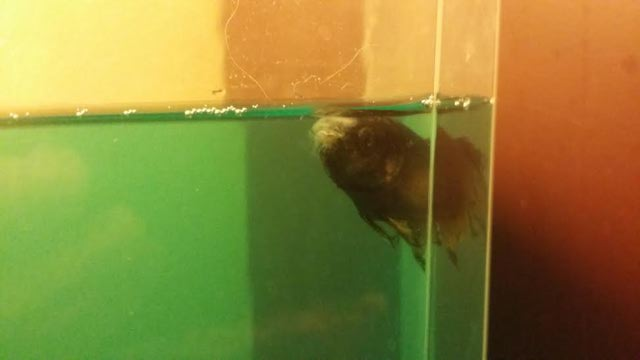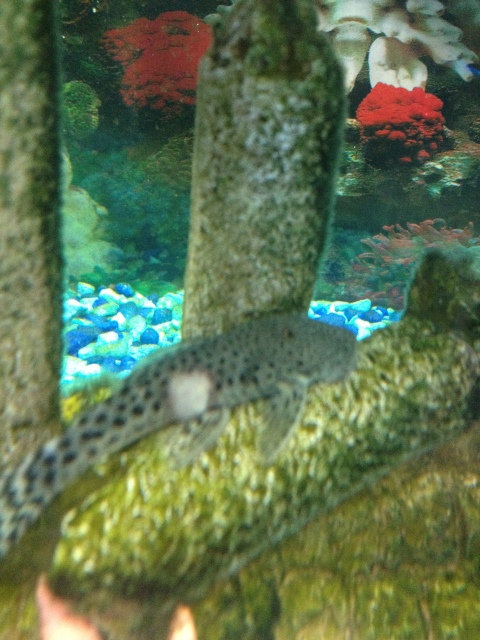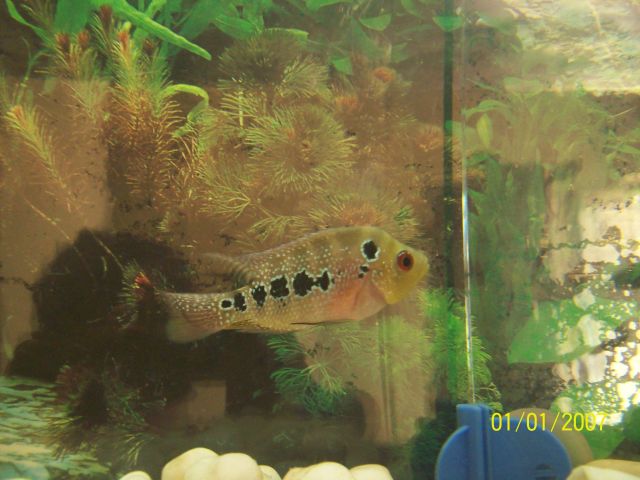Question
 Sick?
Sick?
Hi I have a male betta with mouth fungus. When I first noticed he was sick, I had just got back from a week vacation and had asked my room mates to turn on and off their lights for me. I got home and I'm pretty sure the lights were left on the entire week. I noticed he had to white blotches over his eyes, kind of forming a cataract like film. He didn't get better and a few days later his fins started rotting. I thought it was fin rot and have been treating it. Now, for the past 3 days, his mouth has a white-grey fluffy residue all over his mouth and its spreading to his face. It's getting to the point where I am worried about him breathing/eating as well as the rest of his face. I have been treating him for 3 days with "BETTA REVIVE" (methylene blue) and it just seems to be getting worse. Just a note, he has been separated from his tank mates and is in a quarantine tank. What other suggestions do you have for this poor guy? I heard tea tree oil can help but I can't find a dosage anywhere. Is there something I can do or buy for him that will help speed his recovery?
AnswerHi Renata!
Despite the name, mouth fungus is actually a bacteria infection. Antibiotics that act against gram-negative bacteria, such as kanamycin, should work well against mouth fungus. Antibacterial medications such as phenoxyethanol (at 100 mg/l, for 7 days) and nifurpirinol (also known as furanace or nitrofurazone, 0.2 mg/l, for up to 5 days) have also been used with success. Note that some of these medications, including nifurpirinol, can affect the filter bacteria.
Because it can be difficult to distinguish mouth fungus from both true fungal infections and bacterial finrot, many proprietary medications formulated to treat mouth fungus also treat finrot and fungus as well. Needless to say, success in the long term depends upon the fish being properly maintained, so some review of water quality, water chemistry, diet, and social behavior will very likely be necessary.
Tea-tree oil from Melaleuca tree species has been used to prevent bacterial infections of fish with some degree of success. If a fish has been damaged or nipped, isolating that fish from the source of trouble and then treating with tea-tree oil may be helpful in preventing both mouth fungus and finrot, as well as true fungal infections.
Salt (sodium chloride) is not particularly useful in treating mouth fungus, though it may have some value in preventing bacterial infections generally when used at a dose of up to 1 oz per US gallon. Note however that salt concentrations likely to prevent bacterial infections will be too high for most freshwater fish, making salt only useful in situations involving truly salt-tolerant fish, such as guppies and mollies.
If your fish is not able to eat, I advise you to prepare some small pellets instead of flakes, as the round shape should be easier to enter the small whole in the infected mouth.
Hope this helps!
-Sam


 high PH levels
Question
Our 90 Gallon Tank
We recently set up at 90 ga
high PH levels
Question
Our 90 Gallon Tank
We recently set up at 90 ga
 RED WAG PLATY SICK?
QuestionQUESTION: I HAVE A 60 GAL TANK WITH BRACKISH WA
RED WAG PLATY SICK?
QuestionQUESTION: I HAVE A 60 GAL TANK WITH BRACKISH WA
 Rubber lip pleco
Question
pleco spot
i have a 10 gallon set up wi
Rubber lip pleco
Question
pleco spot
i have a 10 gallon set up wi
 Very shy cardinal tetras and water questions
Questionaqua
QUESTION: Hi , its been a month tha
Very shy cardinal tetras and water questions
Questionaqua
QUESTION: Hi , its been a month tha
 IS my flower horn male or female
Question
my flower horn
IS my flower horn male or femal
IS my flower horn male or female
Question
my flower horn
IS my flower horn male or femal